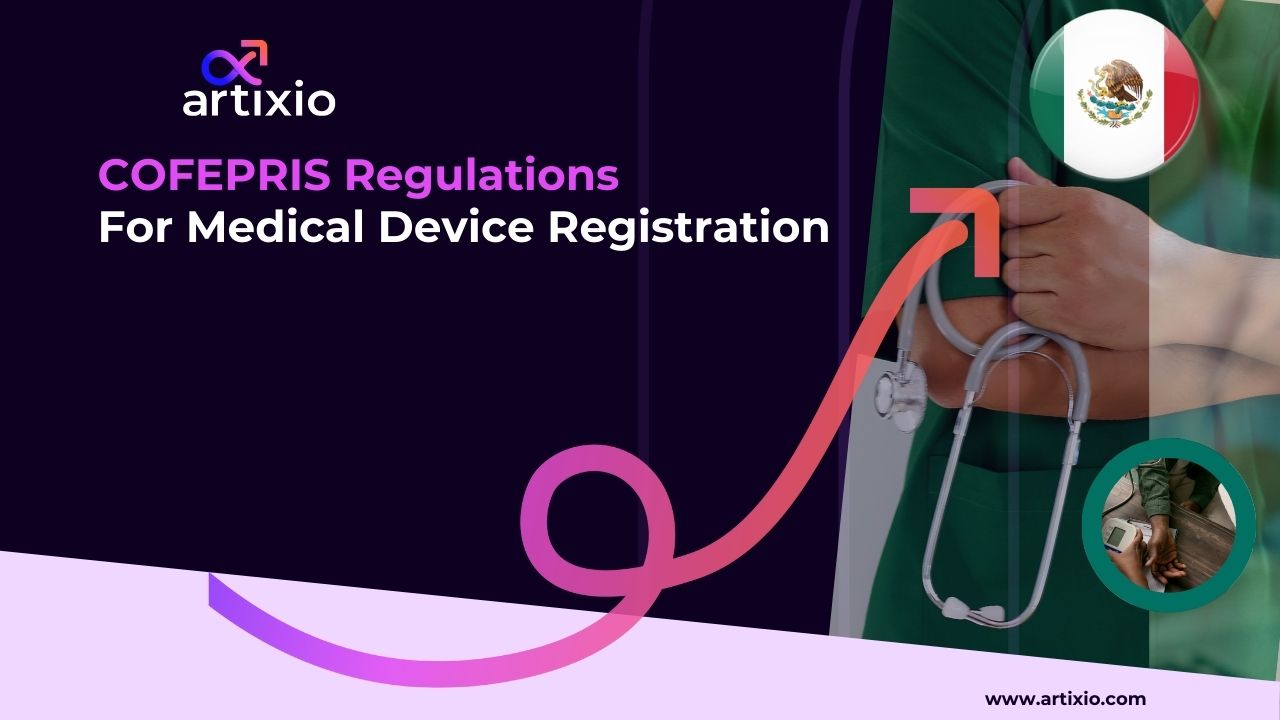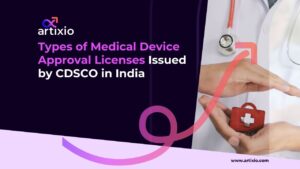The healthcare sector, being a dynamic and rapidly developing industry, relies heavily on medical devices to support diagnosis, treatment, and patient care. With its position as the second-largest medical device market in Latin America, Mexico presents a lucrative opportunity for manufacturers in the IVD and medical device industry. The projected revenue for the Medical Devices sector is expected to reach an impressive $6.25 billion in 2022. Among the various segments, cardiology devices stand out with the largest market size, estimated at $0.82 billion in 2022. Let’s explore the rules and guidelines governing medical devices in Mexico.
Medical Device Regulatory Authority In Mexico:
The regulatory body overseeing medical devices in Mexico is the Federal Commission for Protection against Sanitary Risks (Comisión Federal para la Protección contra Riesgos Sanitarios, COFEPRIS). COFEPRIS’s primary responsibilities entail evaluating medical devices to ascertain they meet the required standards, promoting public health and ensuring the safety of patients.
Product Classification with Examples:
as per Mexico (COFEPRIS) Regulations for Medical Device Registration
– Medical devices in Mexico are classified into four risk classes: Class I, Class IIa, Class IIb, and Class III, based on their associated potential risk.
– Class I devices are non-invasive and have low risk, examples include elastic bandages, crutches, and non-powered surgical instruments.
– Class IIa devices are low to medium-risk and include non-invasive diagnostic devices like thermometers and blood pressure monitors.
– Class IIb devices are medium to high-risk, such as powered medical instruments and certain implantable devices.
– Class III devices are high-risk, including implantable cardiac pacemakers and heart valves.
– Medical device labeling in Mexico must be in Spanish and should include essential information.
Medical Device Clinical Trial Requirements:
In Mexico, clinical trials for medical devices are mandated for specific high-risk devices (Class III) and novel technologies. These trials must comply with national regulations and guidelines in terms of their design and ethical considerations. To initiate the approval process, researchers are required to submit a comprehensive research protocol to COFEPRIS for thorough evaluation and authorization. This ensures that the trials adhere to the established standards and safeguards in place.
Testing Requirements:
When it comes to medical devices intended for use in Mexico, they must meet precise technical requirements and adhere to rigorous safety standards. To demonstrate compliance with the regulations set by Mexican authorities, manufacturers are obligated to conduct testing. While third-party testing is allowed, it is important to note that the testing laboratories must be accredited and recognized by the Mexican authorities.
Foreign Testing and Applicability:
In some cases, foreign testing data can be utilized to support medical device registration in Mexico, especially if conducted in recognized international labs. However, it is crucial to verify the acceptance of foreign testing data on a case-by-case basis.
Pre-registration Requirements:
Prior to submitting the registration application, manufacturers are required to obtain a COFEPRIS sanitation license. This license serves as confirmation that the manufacturing facilities adhere to good manufacturing practices (GMP) and comply with quality standards.
Medical Device Registration Process In Mexico:
The registration process for medical devices in Mexico consists of the following steps:
a. Submission of the registration application and necessary documents, including technical information, labeling, and proof of compliance with Mexican standards.
b. COFEPRIS conducts a review and evaluation, which may include a technical assessment and inspection of the manufacturing facilities.
c. Upon successful completion of the evaluation, the registration certificate is approved and issued.
Approval in EU/US and its Impact on Registration:
Medical devices that have already obtained approval in either the European Union (EU) or the United States (US) can benefit from an expedited registration process in Mexico. The Mexican regulatory authority, COFEPRIS, acknowledges the rigorous standards of these well-regulated markets and may take into account their approvals during the evaluation. This recognition can potentially streamline the registration timeline for the medical device, offering a more efficient path to market entry in Mexico.
Import and Distribution Requirements:
To import and distribute medical devices in Mexico, entities must possess a valid importation and distribution license issued by COFEPRIS. Additionally, they must comply with all labelling and packaging regulations.
List of Documents Required in Each Module:
The documents needed for medical device registration vary based on classification and risk level. However, common requirements include technical details, quality management system certificates (ISO 13485), clinical evidence, labelling, manufacturing facility information, and GMP compliance.
GMP Inspection Requirements:
To register medical devices in Mexico, manufacturers must meet COFEPRIS’s Good Manufacturing Practices (GMP). Inspections may be conducted on manufacturing facilities to confirm compliance with GMP standards.
Timeline and Associated Fees:
The timeline for medical device registration in Mexico can vary depending on the device class and complexity. Standard Route typically takes 3-6 months, Expedited Route (Third Party Route-TPR) takes 2-5 months, and Equivalency Route (for US, Canada, and Japan-approved devices) takes 3-8 months. The registration fees for medical devices and in-vitro diagnostic (IVD) devices vary based on their classification. For Class I MD/IVD devices, the registration fee is $650 USD. Class II MD/IVD devices have a registration fee of $1,000 USD, while Class III MD/IVD devices require a registration fee of $1,250 USD.
Post-Marketing Activities:
Medical device manufacturers are entrusted with ongoing responsibilities following the registration and approval of their products. These include:
1. Pharmacovigilance: Manufacturers are required to actively monitor and promptly report any adverse events or negative effects associated with the use of their devices. This enables the identification and addressing of potential risks to ensure the continued safety and effectiveness of the devices.
2. Variations: Any modifications or changes to the device’s design, labelling, or manufacturing process must be communicated to COFEPRIS, the regulatory authority in Mexico. This ensures that these changes are evaluated for compliance and safety considerations to maintain the quality of the devices.
3. Renewal: Registration certificates for medical devices typically have a limited validity period. Therefore, manufacturers must ensure the timely renewal of these certificates to continue legally marketing and selling their devices in Mexico.
4. Audits: COFEPRIS has the authority to conduct post-market audits to assess manufacturers’ compliance with regulations and standards. These audits serve as an important evaluation tool to verify that manufacturers are adhering to the necessary requirements and maintaining the desired quality and safety standards.
Conclusion:
The regulatory landscape for medical devices in Mexico aims to safeguard patient safety and maintain the quality and efficiency of healthcare technology. Manufacturers must undergo a rigorous registration process, fulfil quality systems and GMP requirements, follow strict labelling services guidelines and actively participate in post-market surveillance. This exhaustive framework creates a robust environment where patients and healthcare professionals can have faith in the safety and effectiveness of medical devices, thereby promoting the development of healthcare as a whole throughout Mexico.
COFERIS QMS compliance Requirements under NOM-241-SSA1-2021
NOM-241-SSA1-2021 is an integral component of the comprehensive legal framework governing medical devices in Mexico, playing a pivotal role in guaranteeing the safety, effectiveness, and quality of these products. The most recent iteration of the Mexican Official Standard, NOM-241-SSA1-2021, which addresses Good Manufacturing Practices for Medical Devices (referred to as NOM-241 hereafter), was officially released on December 20, 2021, and became enforceable on June 20, 2023. This updated regulation aligns with international standards and best practices for medical devices, taking into consideration:
- International Medical Device Regulators Forum (IMDRF)
- EU Medical Devices Regulation 2017/745 (MDR)
- ISO 13485:2016
- The Medical Device Single Audit Program (MDSAP)
- These harmonization with global standards enhance the quality and regulatory compliance of medical devices produced and marketed in Mexico.
What’s New in Comparison to NOM 2012?
The most recent iteration of the NOM-241 standard introduces novel concepts and enhances the clarity of definitions, offering a more comprehensive understanding when compared to the 2012 version. These revisions are in harmony with the recent release of the 5.0 Supplement for Medical Devices in the Mexican Pharmacopoeia. Additionally, they align with the latest amendments to the General Health Law. Some of the fresh and modified concepts now encompass:
- Good practices for storage and distribution
- Adherence to Good Laboratory Practices
- Introduction of the Certificate of Compliance
- An updated medical device definition, now including Software as a Medical Device (SaMD)
- Incorporation of Quality Risk Management
- Guidelines for the refurbishing of medical devices
- Regulations for the remanufacturing of medical devices
- Introduction of an Annual Product Review (APR) and Annual Quality Review (AQR) of products
- Clarification of the role of the Registration Holder
In addition to the existing requirements laid out in the 2012 version of NOM-241, the updated Quality Management System (QMS) requirements now necessitate addressing the following areas:
- Monitoring and measurement of the product.
- The integration of risk management protocols.
- References:
Federal Commission for Protection against Sanitary Risks (COFEPRIS) – Official Website: https://www.gob.mx/cofepris
Mexican Official Standards (NOMs) – COFEPRIS: https://www.gob.mx/cofepris/acciones-y-programas/normas-oficiales-mexicanas
International Medical Device Regulators Forum (IMDRF): https://www.imdrf.org/
Mexican Official Standard NOM-241-SSA1-2012 – https://www.dof.gob.mx/nota_detalle.php?codigo=5289868&fecha=15/07/2013
Guidelines for Registration of Medical Devices in Mexico – https://www.gob.mx/cofepris/documentos/lineamientos-para-el-procedimiento-de-registro-de-dispositivos-medicos
Mexican Official Standard NOM-EM-007-SSA3-2016 – https://www.dof.gob.mx/nota_detalle.php?codigo=5455860&fecha=06/06/2017





